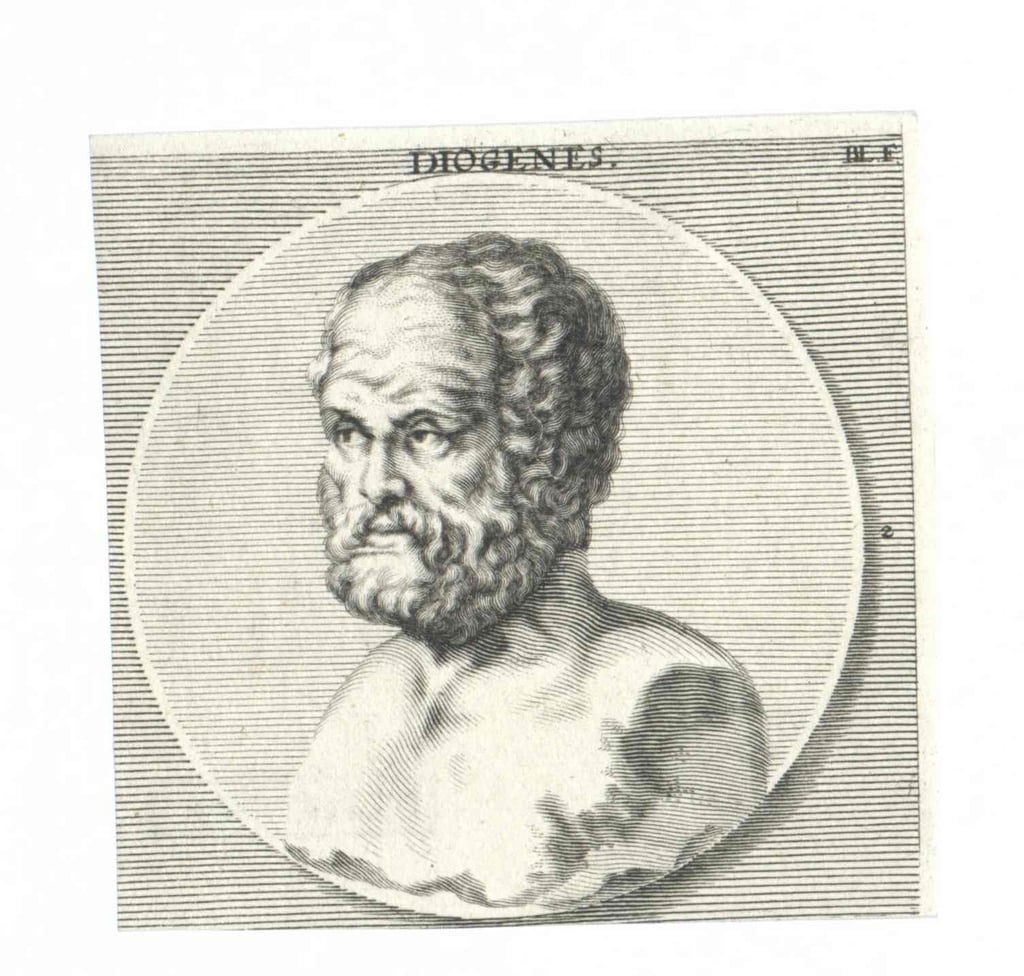
He was followed by Crates of Thebes, who gave away a large fortune so he could live a life of Cynic poverty in Athens.

Diogenes took Cynicism to its logical extremes, and came to be seen as the archetypal Cynic philosopher. He was followed by Diogenes, who lived in a ceramic jar on the streets of Athens. The first philosopher to outline these themes was Antisthenes, who had been a pupil of Socrates in the late 400 BC.
DIOGENES OF SINOPE AND HIS CONTRIBUTION TO PHILOSOPHY FREE
Instead, they were to lead a simple life free from all possessions. As reasoning creatures, people can gain happiness by rigorous training and by living in a way which is natural for themselves, rejecting all conventional desires for wealth, power, and fame, and even flouting conventions openly and derisively in public. For the Cynics, the purpose of life is to live in virtue, in agreement with nature. From both a civilian aspect and from a student aspect, I can’t really find a true reason as to why Diogenes should be added to our history books, outside of a small sidebar.Cynicism (Ancient Greek:) is a school of thought of ancient Greek philosophy as practiced by the Cynics (Ancient Greek: Latin: Cynici). What makes it even more difficult is that ancient cynicism is far removed from current cynicism. As one hears about him, you can clearly tell why he isn’t talked about within schools but understanding his impact is slightly more difficult. He was regarded as a great philosopher and had several interesting and humorous ideas.

He was a great philosopher after all, just not talked about that often due to clear reasons.ĭiogenes, as a person in history, is an interesting topic. There are many stories of him meeting with Alexander the great and being, well, his usual self to the ruler. Although he did all these strange and, in some cases of what we would classify as public indecency, disgusting things, he was beloved by the community. He had many quirks, excluding the ones we already talked about, such as a distaste for showing manners, which he equated to lying, a belief in personal excellence and a very meager living, similar to a homeless person. The lantern was used to help him find an “honest man” who actually, by his standards, is a human. As stated many times previously, Diogenes is regarded as a cynic and is known for carrying around a lantern, surrounded by dogs. Diogenes, not being one to stand down to criticism, decided the most logical response would be to urinate on the throwers, similar to how a dog would. The philosophers and nobles found him so hilarious, in fact, that they threw bones at him and called him a dog.

Both in ancient times and now, many people found Diogenes to be quite hilarious, especially the philosophers. He was extremely well known for sleeping in public buildings, eating in public market (which was prohibited in ancient Greece) and even sleeping in a bathtub. He found that most of the people in cities were corrupted by the customs of mankind. Both Diogenes and his father were exiled from Sinope for this and left for Athens but Diogenes, as he is the focus of this, choose to use this chance to become a philosophical thinker and adopt a life of asceticism. Many sources agree that due to his belief that he must “deface the currency”, he proceeded to literally deface the currency, either by cutting the face off the ‘heads’ side of the coin or making large slash marks across it. Diogenes worked with his father and thus begins how he was exiled. His father worked with money but, much with a majority of ancient history, we are not sure how exactly it specifically worked. To begin on Diogenes, we must start with his year of birth which is believed to be 412 B.C.E.


 0 kommentar(er)
0 kommentar(er)
